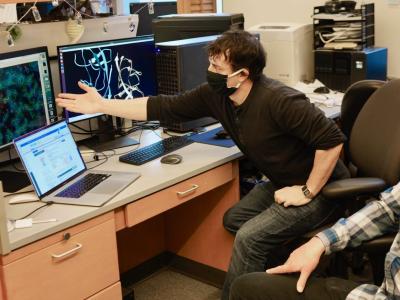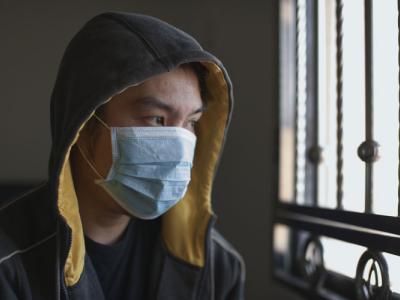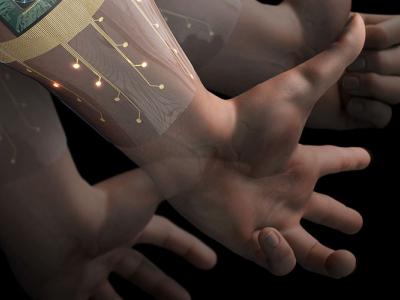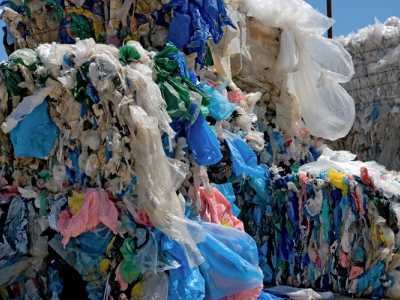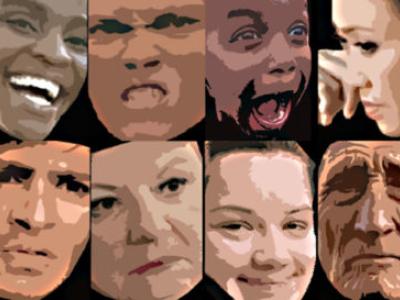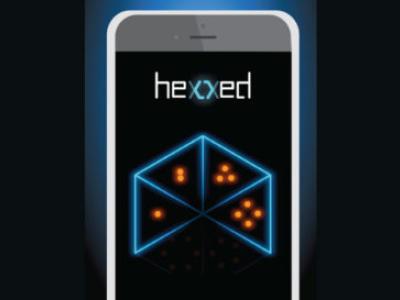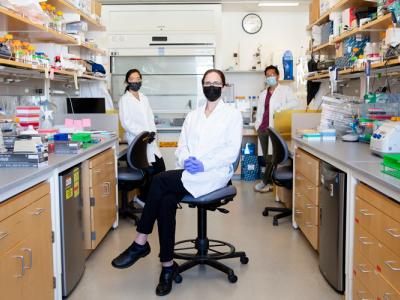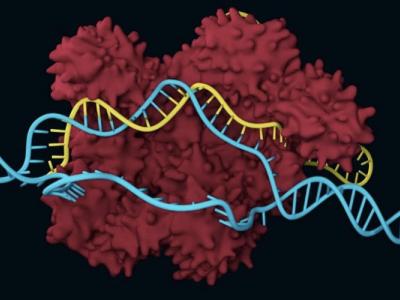Apart from black holes, magnetars may be the most extreme stars in the universe. With a diameter less than the length of Manhattan, they pack more mass than that of our sun, wield the largest magnetic field of any known object — more than 10 trillion times stronger than a refrigerator magnet — and spin on their axes every few seconds.
Research News
Learn more about UC Berkeley's researchers and innovators.
Showing 1265 - 1280 of 3618 Results
Biologists used crystallography performed at Berkeley Lab’s Advanced Light Source to reveal the new virus’s unusual protein structure.
Each year, thousands of migratory mule deer and pronghorn antelope journey northwest from their winter homes to their summer homes in the mountainous landscape near Grand Teton National Park. But to reach their destination, these ungulates must successfully navigate the more than 6,000 kilometers (3,728 miles) of fencing that crisscrosses the region. That’s enough distance to span nearly twice the length of the U.S.-Mexico border.
Americans, and people across the world, watched in shock and alarm yesterday as hundreds of right-wing extremists stormed the U.S. Capitol while Congress was certifying the Electoral College votes that produced a victory for Democrat Joe Biden and a defeat for President Donald Trump. But no one should have been surprised, says Lawrence Rosenthal, head of the Center for Right-Wing Studies at UC Berkeley.
When Yellowstone National Park’s Steamboat Geyser reawakened in 2018 after three and a half years of dormancy, some speculated that it was a harbinger of possible explosive volcanic eruptions within the surrounding geyser basin. A new study by geoscientists who study geysers throws cold water on that idea, finding few indications of underground magma movement that would be a prerequisite to an eruption. The geysers sit just outside the nation’s largest and most dynamic volcanic caldera, but no major eruptions have occurred in the past 70,000 years.
The more chaotic things get, the harder it is for people with clinical anxiety and/or depression to make sound decisions and to learn from their mistakes. On a positive note, overly anxious and depressed people’s judgment can improve if they focus on what they get right, instead of what they get wrong.
Imagine typing on a computer without a keyboard, playing a video game without a controller or driving a car without a wheel. A new device developed by engineers at the UC Berkeley can recognize hand gestures based on electrical signals detected in the forearm. The system, which couples wearable biosensors with artificial intelligence (AI), could one day be used to control prosthetics or to interact with almost any type of electronic device.
While many cities and eight states have banned single-use plastics, bags and other polyethylene packaging still clog landfills and pollute rivers and oceans.
One major problem with recycling polyethylene, which makes up one-third of all plastic production worldwide, is economic: Recycled bags end up in low-value products, such as decks and construction material, providing little incentive to reuse the waste.
Whether at a birthday party in Brazil, a funeral in Kenya or protests in Hong Kong, humans all use variations of the same facial expressions in similar social contexts, such as smiles, frowns, grimaces and scowls, a new UC Berkeley study shows.
High-stakes negotiations underway in Washington, D.C., over a new round of pandemic relief funding could help California to achieve a relatively quick recovery — or, if they fail, contribute to an economic slump that lasts for years, UC Berkeley scholars say.
Mozambique’s civil war, which raged from 1977 to 1992, took a devastating toll on wildlife in the country’s famed Gorongosa National Park, a 1,500-square-mile reserve at the southern tip of Africa’s Great Rift Valley. During the war, violence and food insecurity drove many people to hunt wild animals to feed themselves, resulting in the loss of more than 90% of the large mammals in the park.
Fans of Candy Crush Saga, Flow Free or Minesweeper should check out a challenging new mobile game app, hexxed, that will stretch your brain as it helps brain researchers understand human strategic thinking and perhaps improve the reasoning of artificial intelligence.
The landmark Clean Air Act (CAA) turns 50 this month, and its impact has been dramatic: Ambient measures of pollutants have fallen more than 90% in some areas, and improvements in air quality are credited with preventing hundreds of thousands of premature deaths.
On the morning that University of California, Berkeley, professor Jennifer Doudna won the 2020 Nobel Prize in Chemistry, her first stop after a 7 a.m. press conference and subsequent media interviews was her campus lab in the Innovative Genomics Institute. When she exited the elevator with her family at 10:30 a.m., she was greeted by dozens of graduate students and lab staff, while several dozen current and former lab members joined in via Zoom.
CRISPR-Cas9 makes it easy to knock out or tweak a single gene to determine its effect on an organism or cell, or even another gene. But what if you could perform several thousand experiments at once, using CRISPR to tweak every gene in the genome individually and quickly see the impact of each?
Astronomers are still searching for a hypothetical “Planet Nine” in the distant reaches of our solar system, but an exoplanet 336 light years from Earth is looking more and more like the Planet Nine of its star system.


